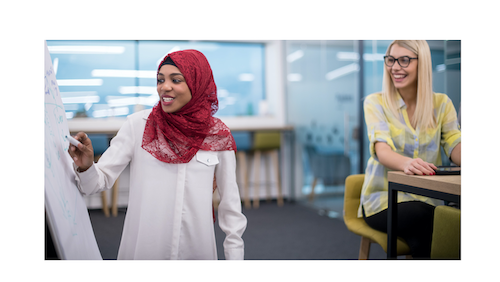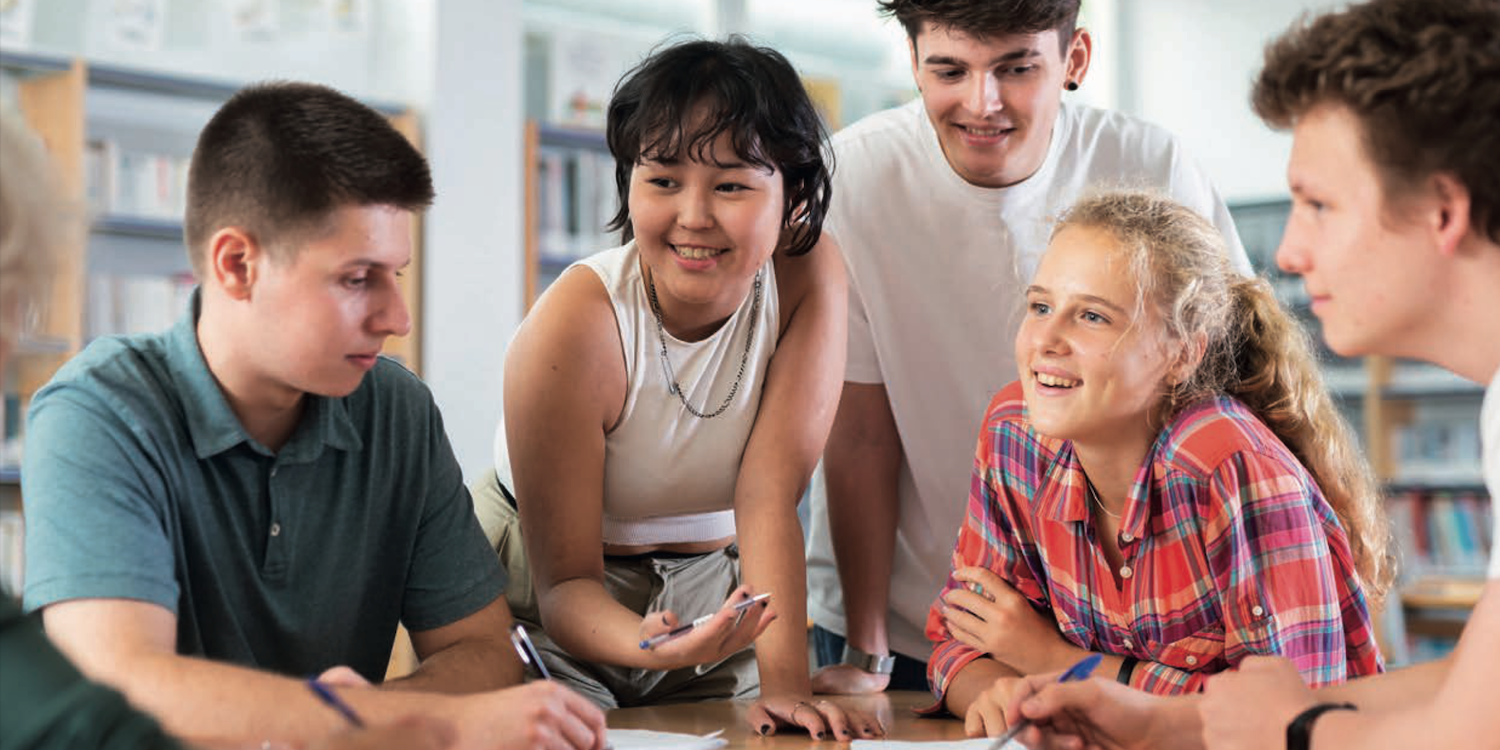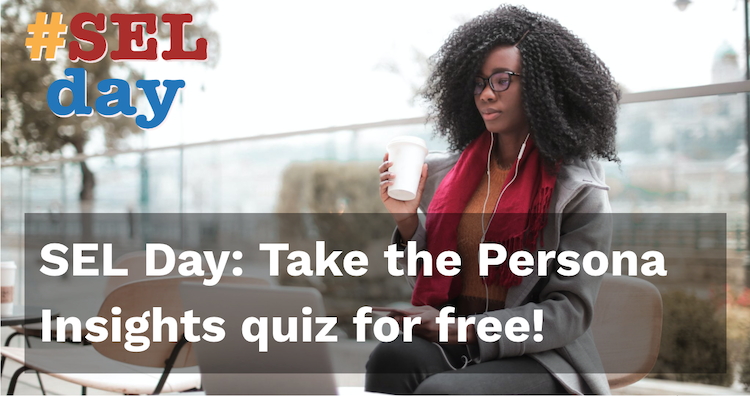Life Skills in the Curriculum – 10 Habits for Developing Social-Emotional Skills in Every Classroom
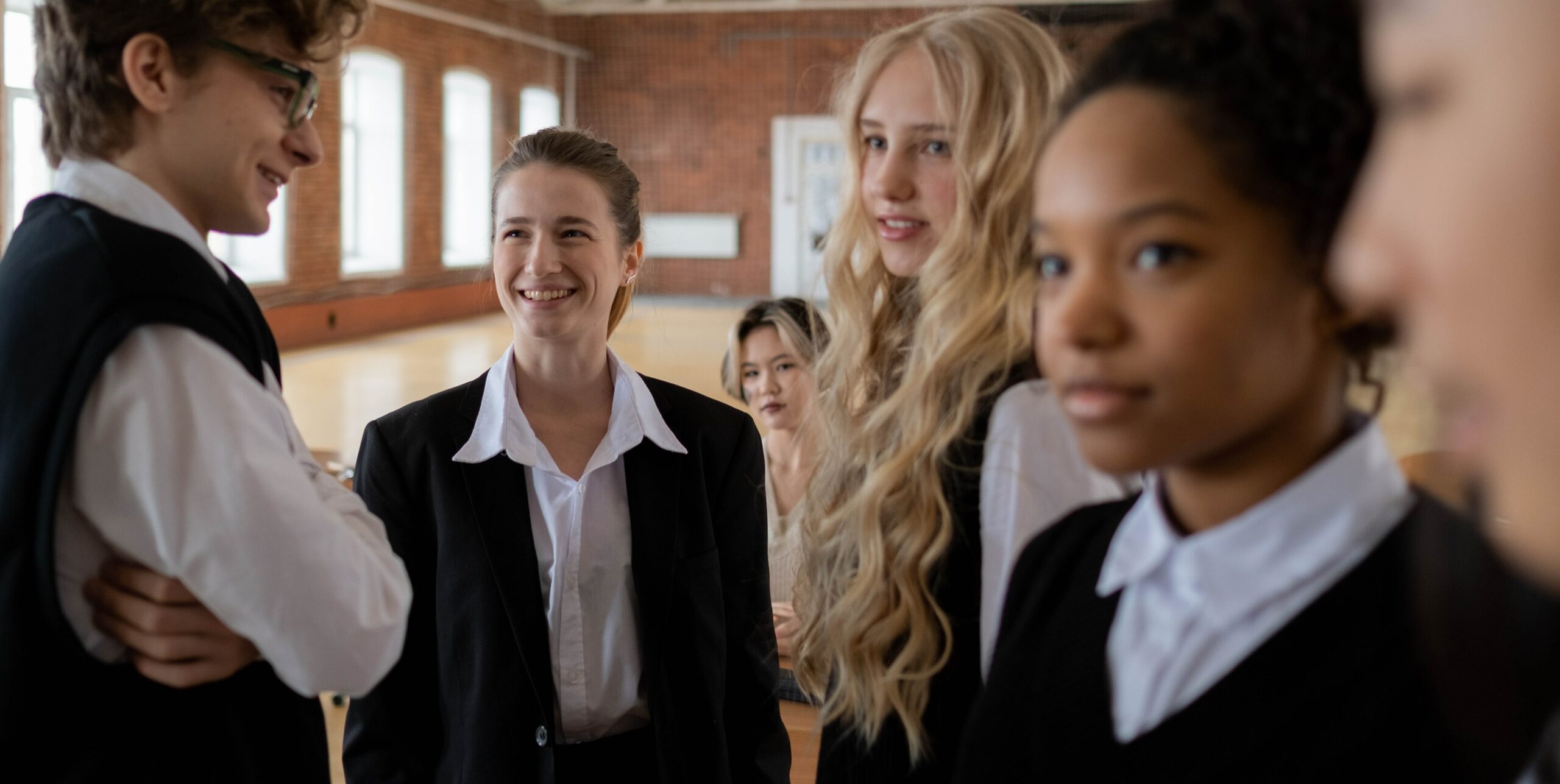
In this article, Persona Education co-founder Dr Leila Khouja Walker makes the case for a whole school approach to student personal development, where ALL teachers have a role to play in improving students' social-emotional skills. She provides 10 practical habits to adopt, so every teacher from Maths to PE can play their part. Strategies range from overtly stating social-emotional skills within lesson objectives, to teachers modelling these same skills when delivering lessons.
7-Mar-23
By Dr Leila Khouja Walker, Chief Product Officer & Co-founder
Watch the webinar recording (40 mins): Watch »
Embedding social-emotional skills development across the school curricula
Whether you are a Citizenship teacher, PSHE lead, Maths teacher or a Modern Languages tutor, here are 10 classroom habits that will help get you started. And just imagine the cumulative impact on our students if ALL teachers started to integrate social-emotional learning more overtly into their everyday routine.
All 10 habits are applicable to your lessons. If this is all very new to you, I suggest you choose one or two strategies to start with, and see how you and your students get on. Then with greater confidence, you can start to add additional strategies to your social-emotional teaching toolkit.
Note, for extra clarity, I’ve highlighted individual social-emotional skills so that you can start to recognise them.
1. Setting learning intentions

We are all well versed in providing our students with lesson objectives that help them to focus on the learning to be gained during the lesson. So why not add a social-emotional skill too?
The notion of setting our intention is associated with two key social-emotional skills: Goal-setting and Time Management. So by default, each time you set your lesson objectives within the timeframe of a lesson - you can remind your students of these two skills they are practising.
You are preparing students for an upcoming test. In this lesson, you could add the following lesson intentions:
- To develop Stress Management strategies.
- To Manage Feelings during test periods.
During the lesson, take some time to check in with the students, recognising that for many, tests can provoke anxiety. Remind students of tips they can adopt to help them manage their feelings and any additional stress incurred. For example, acknowledging the thoughts and feelings that cause stress, and understanding you can take action to reduce it, will help. This coping mechanism is called ‘Thoughts, Feelings and Actions.’
2. Promoting peer-to-peer learning

We are trained as teachers to create learning environments that support social constructivism. In other words, we know that encouraging dialogue between our students helps to construct new or higher order learning. However, dialogue between peers requires the use of social-emotional skills, such as Active Listening, Processing Information and Empathy. But instead of covertly supporting these skills, being open and naming them, and providing strategies for improving them, will be so much more impactful.
You want to find out your students’ prior knowledge on a new topic, or what they have learnt so far on a topic you have been teaching.
Use Kagan’s Timed, Shared, Pair cooperative learning structure to get students standing up, moving around and talking to different peers in the classroom. Ask them in pairs to listen to one another for 30 seconds without interruption then ask the ‘listener’ to feed back on what their peer had to say.
And don’t forget! Add to your Learning Intentions at the start of the lesson.
- To practise Active Listening
- To use Processing Information skills
3. Equipping with problem-solving strategies

We are often faced with students who come into our lessons with misconceptions. These misconceptions can materialise when we check in with our students’ prior knowledge on a topic, idea or observation.
As teachers we are taught to challenge these misconceptions through a process of cognitive conflict. This can happen during peer-to-peer learning (see above) when students are sharing their thoughts and opinions, which may be different from each other’s. This is particularly effective due to the mental effort required during such dialogue exchanges.
Creating a safe environment for students to solve problems together can encourage cognitive conflict. Providing strategies to test their own hypotheses can help to move them from misconceptions towards more widely accepted theories. Some of the social-emotional skills involved are Creative Thinking, Critical Thinking and Effective Teamwork, as well as Communication skills.
To help students ‘build’ an idea, use the “Yes, and…” approach. This can be done in pairs or small groups.
- One student tells a classmate their idea.
- Their classmate responds with “Yes, and…” to offer a suggestion that makes the original idea even better.
- Then, the first student responds with “Yes, and...” to improve the idea further.
- Keep going until there are no more suggestions on how to make the idea even better.
4. Increasing student agency

Many negatives came out of the COVID-19 pandemic with regards to students’ absence from the school setting. However, one positive that many students reported was increased agency. In other words, the ability to take charge of their own learning.
Most have now returned to the heavily regimented routine of physical school, and many are finding it difficult to conform, and in some cases, genuinely not wishing to, as they remember the positives they experienced, taking control over how and when they learned during lockdown. Finding a hybrid or a compromise between the two, may be a more constructive objective.
Several social-emotional skills are important for students to increase their agency, including Self Awareness, Self-confidence, Goal-setting and Time Management.
Goal-setting is a critical one. Many goals, including those we set in class or for homework, benefit from being broken down into smaller steps. Getting students to practise this in class (project and group work problem-solving suits this well) will support their independent learning capability.
- Identify the steps required to achieve the goal.
- Put the steps in the order they need to be done.
- Estimate the time required for each step.
- Decide when this goal should be achieved.
- Encourage students to keep reminding themselves how they will feel when they achieve their goal.
5. Keeping them going when learning gets tough

Mental effort is required if we are to learn. But that can be a tough sell to our students. So, we need to arm them with the social-emotional skills to recognise when learning is getting hard, and to resist the urge to take an easier route. Instead, students must Stay Positive and Persevere until their goal is achieved.
Easier said than done. So, as teachers we can use some of our classroom time to suggest strategies, and allow students to practise, so they begin to realise the benefits of digging deep and not giving up. Psychologists sometimes call this 'doing despite disliking'.
Practice example
Perseverance requires a positive mindset. As teacher, support your students to:
- Focus on positive consequences – you might go as far as to ask students to state this as the start of any task.
- Regulate their emotions – stay positive by thinking of happy moments.
- Check their progress – encourage students to stop and reflect at key moments in a task so they can see how much is done and how much remains.
- This can be done as a task checklist.
- Encourage them to picture the finish line – keep thinking “I’m getting there!”
Finally, it is helpful to remind your students that everyone struggles with tasks set at times. Even teachers! But it is important to communicate that when they are struggling, it always helps to talk to a teacher, friend or family member, and asking for help is ‘strong’ – not ‘weak’.
6. Maintaining a positive teacher-student relationship
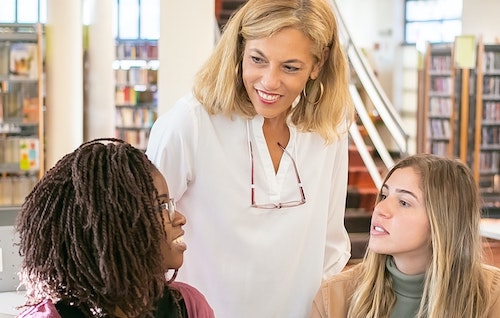
Active Listening is essential in the classroom. It is a sign of Respect between two people and enables both teacher and student to Process Information before responding, both having listened fully.
Sometimes, the teacher-student relationship is challenged, and conflict can occur. As teachers and students, learning to Manage Conflict and be Willing to Change are critical social-emotional skills for maintaining a positive relationship.
Contrary to what many instinctively believe, conflict can result in a positive change where relationships are strengthened – but only when managed properly. Remember, as teachers we are constantly acting as role models (see strategy 10 below). The way we respond to a conflict tends to be a controlling factor in whether it will have a positive or negative outcome.
Practice example
Proactively teach, as well as, model these tips for Managing Conflict.
- Remain calm. If this is difficult, take a few minutes and breathe.
- Be present. Treat the other person as you wish to be treated.
- Be specific. Describe what you are concerned about or what you need.
- Use “I” statements rather than “you”. For example, “I feel disrespected…” rather than, “You are being disrespectful…”.
- Stick to the facts. Be honest and clear about the situation.
- Use positive body language. Maintain eye contact and don’t enter their personal space. Show you are Actively Listening.
7. Improving student presentations

A presentation is most successful when the audience is engaged and learns something interesting or new. It requires the ability to Speak Formally. It also requires Being Adaptable, so you meet your audience’s needs as well as your own.
Being Adaptable is commonly stated as a highly desirable skill by employers, who require increasingly that the workforce is able to change with their business needs. During the pandemic, almost everyone’s ability to be adaptable was put to the test.
How much you adapt in different situations shows whether you have considered the other person’s needs and preferences as well as your own, and whether you are aiming to achieve a positive outcome both for yourself and for them.
The following tips can help students improve their Adaptability, and aid their preparation for a presentation.
- Practise your presentation and ask a friend to provide you with feedback.
- Before you start, check you know what the audience expects from the presentation. What are you informing the audience about that they do not already know, or that may be of interest to them?
- Clearly state the objectives of your presentation at the start, and continue to refer to them throughout. Don’t get side-tracked with anything irrelevant.
- Add a Q&A at the end of the presentation, for example a poll, to see if you met your audience’s needs.
- Reflect on the feedback ready for when you next do a presentation.
8. Preparing for tests

Most students feel anxious about exams. Anxiety means they care about the outcome. However, learning how to manage and channel their emotions is important if students are to do their best in tests and exams.
The social-emotional skills required to prepare for tests are wide-ranging and include Stress Management, Goal-setting, Time Management and Perseverance.
Finding lesson time to focus on one or more of these skills will pay off with regards to final outcomes, as you equip students with the necessary toolkit to perform well.
Remind students of some key tips to help them prepare well for any test.
- Create a revision schedule to help with realistic Time Management and Stress Management.
- Be realistic about what you can learn in a set time (see previous tips on Goal-setting above).
- Seek help instead of giving up (see previous tips on Perseverance in strategy no. 5 above).
- Adopt different approaches to revision, eg. Creative Thinking.
Ask students, from the tips above, which ones do they find most challenging, then focus your support accordingly.
9. Developing a Growth Mindset
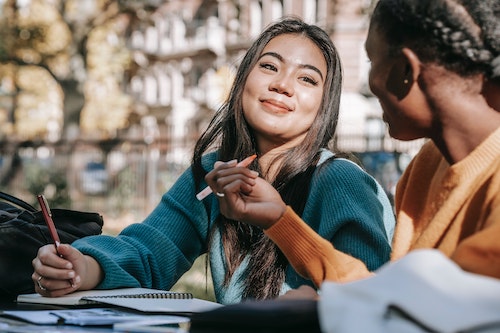
For decades the business world has recognised the importance of employees having a Growth Mindset or Abundance Mindset. But why should we not instil this same thinking framework – that fosters love of learning and resilience to perceived ‘failures’ in our students – at school?
A fixed mindset means you believe intelligence, talent, and other qualities cannot be changed. If you are not good at something, you may think you will never be good at it. By contrast, a Growth Mindset means you believe attributes such as intelligence and talent can be developed with time, practice and effort. Not surprisingly, your mindset plays a major role in your motivation to learn, resilience to failure, and feelings of achievement. Social-emotional skills such as Staying Positive, Perseverance and Self-confidence are key to fostering a Growth Mindset.
Many students need constant support and reinforcement to build their Self-confidence. Giving them tips that you refer to often, or even have stated on your classroom walls, will help.
- Say kind things to yourself
- Acknowledge your achievements.
- Seek positive alternatives to negative thoughts
- Avoid comparing yourself with others
- Change “I can’t do this” to “I’ve got this”
10. Modelling behaviour
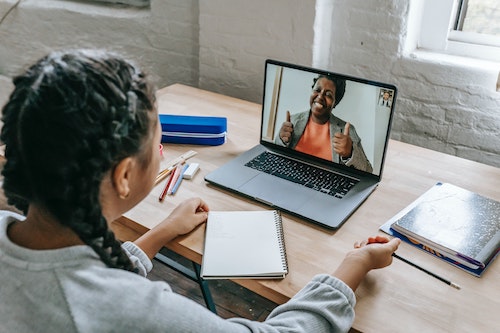
All teachers would benefit from developing their own set of social-emotional skills. Not only for work purposes, but for all aspects of your life. We all accept that we work in a difficult – but hopefully rewarding – profession. However, as with the impact these skills have on our students’ outcomes, they have also been shown to improve teacher wellbeing and performance. In fact, teachers providing teaching support for students to develop social-emotional skills, by default are supporting their own. It really is a win-win!
So let’s raise our own Self Awareness and start to walk the talk when it comes to social-emotional skills in our schools.
Mindfulness is about being aware of your thoughts, emotions and actions. Benefits of being mindful include self-control, tolerance, flexibility, concentration, and the ability to relate to others – and yourself – with kindness, acceptance and compassion.
Be mindful of when you are demonstrating a social-emotional skill and call it out! For example, you are moving around the class listening to groups discuss their task. Tell the students you are Actively Listening into their discussions and will be Processing Information you hear to share with the whole group later.
We must all play a part
Social-emotional skills are fundamental to forming positive, healthy relationships and to making learning effective.
Schools and other learning environments are places of constant interaction: in the classroom, in offices, and in less formal spaces such as corridors, cafeterias and the school gates. These interactions involve the entire school community: students, teachers, administrators, leadership, non-departmental staff, visitors and parents.
Schools which invest resources in social-emotional learning reap the rewards in terms of community cohesion, developing young citizens with agency and life skills, improved academic attainment and better future prospects.
We must ALL play a part in this. The cumulative impact of a whole school approach, where every classroom overtly supports the development of social-emotional skills, is greater than the sum of its parts.
A version of this article was first published in SecEd.
If you enjoyed this article you might also like:
Understanding personalities to inform pedagogy
White paper: Guide to student personal development in secondary schools and colleges
School communities – Relationships and the classroom
Persona Education offers free access to its Persona Life Skills online learning platform for secondary schools and colleges interested in developing their pupils’ social-emotional life skills, to boost wellbeing, academic and employability outcomes.
About the author: Dr Leila Khouja Walker has been working in the education sector for 25 years. An ex-teacher and pastoral deputy head, she is now a respected edtech and pedagogy thought leader, leading development of the personality insights life skills online learning platform Persona Life Skills, at the Bristol based edtech company Persona Education Ltd. persona-life.com




